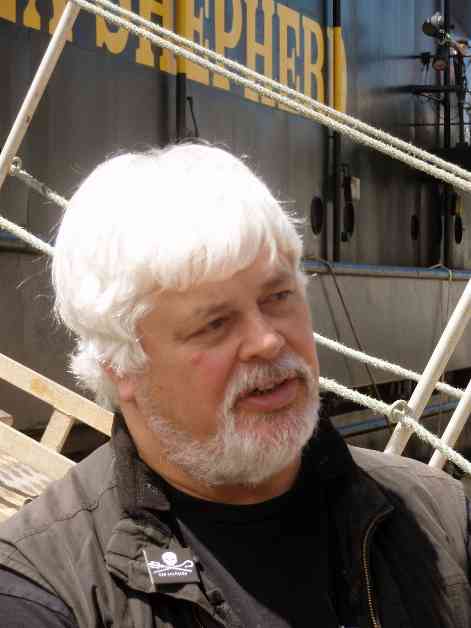Paul Watson, a 73-year-old environmental activist, will remain in detention until December 4th, as announced by the Greenland police. This is pending the decision of the Danish justice system regarding Japan’s extradition request. He has been in custody since July 21st. Lawyer Jean-Charles Teissedre breaks down this complex procedure.
The shocking specifics of the extradition procedure in Denmark
Time is passing, and there is still no extradition judge in sight. Paul Watson, who will turn 74 on December 2nd, the day of the next hearing, must be starting to feel the time drag. Arrested on July 21st and incarcerated in a Greenland prison, he is still held under extradition custody after another hearing before the detention judge. Paul Watson must continue to wait for Danish Minister of Justice, Peter Hummelgaard, to make a decision. Only then will the Greenland extradition judge be involved if the minister approves the extradition. What is most shocking is that Paul Watson still cannot present his arguments.
The unusual Danish extradition procedure, within the European Union (EU), is supposed to guarantee a high level of protection for individual rights. However, the Danish system does not compare favorably with a number of EU member states. In France, only a chamber of the Court of Appeal can issue an opinion, favorable or unfavorable, on an extradition. This is not just an opinion but a legal decision that the government must follow. Therefore, the involvement of political power in the Danish extradition procedure at this stage is surprising, as the subordination between the police, prosecutors, and the Minister of Justice is particularly evident in the Danish judicial system.
An extradition procedure without an extradition treaty
Another procedural peculiarity is the absence of an extradition treaty between the Kingdom of Denmark and Japan. Extradition requests generally rely on a bilateral or multilateral treaty between two or more signatory states. This is not the case here. Extradition is primarily an act of sovereignty, which is not subject to an international convention. The extradition can theoretically be carried out based on national procedural law as a subsidiary measure. For example, Chile, known as a refuge country for extradition, recently granted the extradition of a 54-year-old man to France for sexual offenses against minors. The Chilean authorities found the offenses serious enough to hand over the individual to the French authorities. Therefore, when the requesting state, in this case, Denmark, carries out an extradition procedure without an extradition treaty, it demonstrates a particular intention in a specific case. An exception to the unwritten rule of no extradition in the absence of a treaty with the requesting country.
Local specificities that work against Watson
The arrest and incarceration of Paul Watson in Greenland, a symbolic figure in the fight against whaling, are not coincidental. It is primarily the result of overseas political will in Danish territories, extending from the Interpol red notice issued at Japan’s request, violating the international moratorium on commercial whaling since 1986.
Contrary to popular belief, arresting a person targeted by a red notice is not automatic. It is always a state decision, confirmed or not by an extradition request and the extradition judge. Some individuals targeted by red notices, including heads of state, cross certain borders. The red notice against Paul Watson dates back to 2012 for events in January 2010. During this time, he apparently lived, traveled, and navigated relatively normally, residing between a docked Parisian houseboat and a Marseille residence, without France ever arresting him. Therefore, it is not surprising that the Greenland authorities obtained details of Paul Watson’s ship itinerary from the Faroe Islands, another autonomous Danish territory, suspecting a stop in Nuuk, Greenland. In these territories, whaling is a cultural tradition, making Paul Watson unwelcome. His arrest was not a random check.
A political offense?
One of the arguments Paul Watson is using to oppose his extradition is the political nature of the (common law) offenses Japan accuses him of. In France, Article 696-4 2° of the Code of Criminal Procedure prohibits extradition “when the crime or offense has a political character or when extradition is requested for political purposes.” According to French jurisprudence, political offenses are those that undermine political order, are directed against the government’s constitution and sovereignty, disturb the established order by fundamental state laws and power distribution. Since a Council of State ruling in 1996, the refusal of extradition when requested for political purposes is a fundamental principle recognized by the laws of the Republic, with constitutional value. There is no universal definition of a political offense, so it is up to the competent courts of each state to determine its scope. In practice, treason, espionage, and breaches of national defense secrets are considered political offenses. Julian Assange’s name comes more readily to mind than Paul Watson’s. Including an ecological motive in this definition would be a development that the Danish justice system may resist.
Other legal means
The Danish Minister of Justice stated to the press that “according to Greenland’s extradition law, the act must be of a certain gravity and must not be a political offense.” He also emphasized that extradition would not be allowed if it were incompatible with the European Convention on Human Rights, to which Denmark is a party. While the European Convention does not directly protect individuals targeted by an extradition procedure against political offenses, the European Court of Human Rights is attentive to any potential violation of Article 3, prohibiting torture and inhuman or degrading treatment. Therefore, if the Japanese authorities maintain their extradition request, they will have to provide guarantees to the Danish justice system. The Japanese authorities will undoubtedly be questioned during the additional information stage that the extradition judge will order when involved, which has not happened yet.
Paul Watson is accused of being an accomplice by instruction, as he was not present during the altercation with the Japanese whaler in January 2010. During this incident, a flask of butyric acid (rancid butter) was allegedly thrown in a supposed boarding conspiracy that injured a Japanese sailor’s cheek, based on a testimony that seems to have been collected under disputable conditions.
Although the extradition judge theoretically does not have to assess the seriousness of the charges, they must classify the facts appropriately based on the receiving country’s law, as the extradition procedure is based on the principle of reciprocity of charges. In this context, Paul Watson’s defense video, disputing the facts, will be viewed by the Danish judges. The seriousness of the legally classified facts and the potential sentence depend on this classification. According to Japan’s extradition request, the potential sentence is 15 years in prison. For complicity in an offense that could just as easily be considered unintentional, assuming the facts are true, this may seem excessive.
A long-term deprivation of liberty, in such a context, for a 74-year-old man, a father of three, including two young children aged 8 and 3, could be viewed as inhumane. The detention conditions in Japan, scrutinized by the competent judges, are known for their severity, especially after Carlos Ghosn’s dramatic escape. The extradition judge will also have to assess Paul Watson’s chances of receiving a fair trial in Japan if extradited, which is not straightforward given the Japanese judicial system. Ultimately, the judges will face a difficult decision. Unless the Danish Minister of Justice makes the reasonable choice to avoid global debates soon.

















